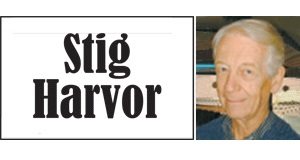Stig Harvor –
 What if anything, can we glean from the unprecedented amount of political activity in our province and city squeezed into just this one year, 2012? Ontario with Toronto is experiencing noteworthy political change. Of special interest is the effect these changes will have on our new Toronto city council to be elected on October 27.
What if anything, can we glean from the unprecedented amount of political activity in our province and city squeezed into just this one year, 2012? Ontario with Toronto is experiencing noteworthy political change. Of special interest is the effect these changes will have on our new Toronto city council to be elected on October 27.
In the just-completed June provincial election, Kathleen Wynne, our first female premier and an openly gay one at that, unexpectedly vaulted a triumphant Liberal Party from its minority status into a majority government. She stunningly defeated a hard right-wing provincial Progressive Conservative (PC) party under Tim Hudak, a member of the former Mike Harris team. Hudak kept his seat but resigned as leader July 2. The New Democratic Party (NDP) led by Andrea Horwath held its own but remained in third place.
Public opinion polls had consistently predicted a very tight Liberal-Conservative race. This provided an opportunity for Wynne to scare NDPers to vote Liberal by enticing them with her NDP-style budget. She effectively promoted the slogan, “A vote for Horwath is a vote for Hudak.” Three out of five Toronto NDP members were defeated by Liberals. Two long-serving and effective Downtown NDP members, Rosario Marchese and Michael Prue, lost; Prue by a razor-thin margin.
The Conservatives also lost their only Toronto member in suburban Etobicoke-Lakeshore to the Liberals. Doug Holyday was a member of Rob Ford’s inner circle until a by-election moved him to Queen’s Park last year. (At the time of this writing, the result of the federal by-election on June 30 in Downtown Trinity-Spadina is unavailable.)
The Liberals were significantly helped to go from a minority to a majority government by our undemocratic first-past-the-post electoral system. It unfairly disconnects votes for a party from the allocation of its legislative seats (see my column, April, 2014).
This year’s percentage of Liberal votes remarkably only rose 1% from those of the last election in 2011, which resulted in a Liberal minority.Yet today in 2014 the different distribution of votes among the ridings made a telling difference. It gave the Liberals 9% more seats for a majority, the Conservatives lost 24% of seats, the NDP rose 19% from 2011.The Greens doubled their votes to 5% but gained no seats.
Compare this lopsided allocation of seats to results by pure proportional representation (European versions are more sophisticated). Our new provincial legislature would remain with a Liberal minority government. The Liberals would have 42 seats with a combined opposition of 65 composed of 33 Conservatives, 26 New Democrats and six Greens. Green Party voters would actually have a voice.
Proportional representation means every vote counts. It eliminates “strategic voting” where people many not vote for the party of their choice. They vote for another party that polls indicate have the best chance to keep a feared party out.
Voter participation has been steadily declining in all elections the last few years. A small democratic ray of hope this year was an increase in provincial election participation from 48% in the last 2011 election to 52% today. But still half of eligible voters do not vote. Main reasons given are not interested or too busy. A few even forgot.
What will be the rate of voter participation in our Toronto municipal election now underway? City elections have the lowest rate of all types of elections. The rates seldom rise above 40% of eligible voters. It is to be hoped the unusually high Toronto rate of 50% four years ago in the 2010 Ford election, will be matched or even improved upon in this year’s again significant test.
 A still unresolved question in our present civic election is the state and condition of our in-name-only mayor, Rob Ford. He entered rehabilitation for his severe and debilitating addictions on April 30. Professional rehab experts said he will need long to improve (if ever). Relapses are common. Rob’s brother, voice and campaign manager, Doug, first claimed Rob would return in a month. Now two months later, Rob has notified the city he will return to his office on June 30 at precisely 1pm.
A still unresolved question in our present civic election is the state and condition of our in-name-only mayor, Rob Ford. He entered rehabilitation for his severe and debilitating addictions on April 30. Professional rehab experts said he will need long to improve (if ever). Relapses are common. Rob’s brother, voice and campaign manager, Doug, first claimed Rob would return in a month. Now two months later, Rob has notified the city he will return to his office on June 30 at precisely 1pm.
Rob is expected to resume his interrupted campaign. The resounding provincial defeat of Tim Hudak’s hard right-wing policies indicates that Rob’s similar political views have fortunately and finally lost their appeal for many voters, particularly in urban areas like Toronto.
 TheBulletin.ca Journal of Downtown Toronto
TheBulletin.ca Journal of Downtown Toronto

